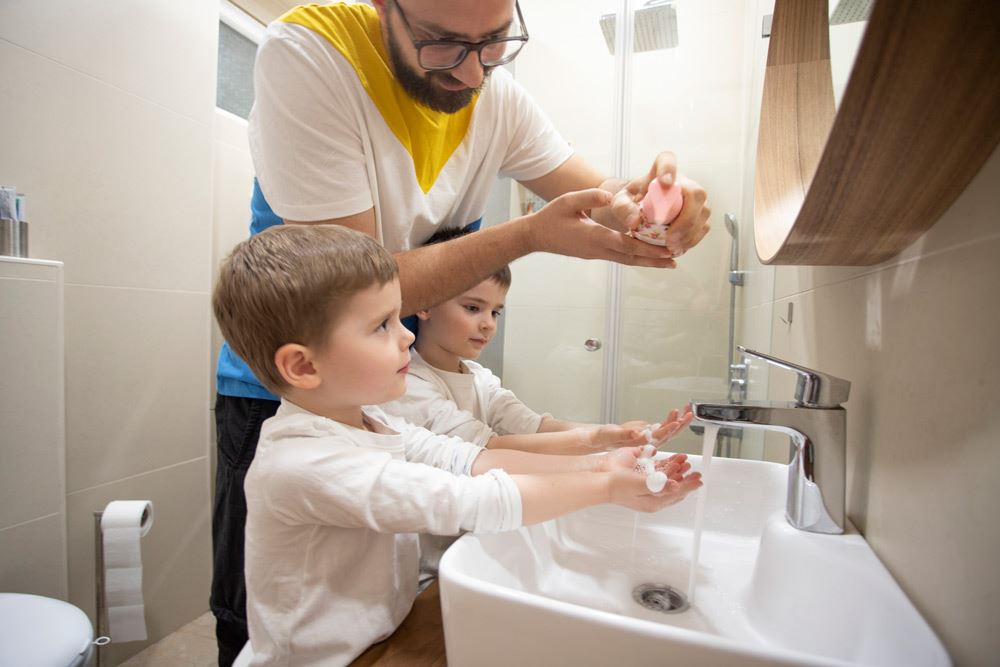Importance of Good Handwashing Heading Back to School
Soon students will be heading back to the classroom and, shortly after, the cold and flu season will start ramping up for the fall and winter months. Germs and bacteria are everywhere and that’s why it’s important for your family to start practicing good handwashing hygiene to minimize the risk of getting sick.
Handwashing is one of the best ways to prevent the spread of germs. According to the Centers for Disease Control and Prevention (CDC), keeping your hands clean can prevent one in three diarrheal illnesses and one in five respiratory infections like a cold or the flu.
- Make sure to use warm water — it’s better at removing oils, germs and other soil from your hands.
- Scrub your hands with soap, forming suds and bubbles.
- Scrub your hands for at least 20 seconds.
For younger kids who have trouble counting, it’s recommended they wash their hands to the tune of “Happy Birthday” or the “ABCs” twice.
Good handwashing can help minimize the number of days parents miss work and children miss school. There are several ways germs can enter the body — through the eyes, nose and mouth. That’s why it’s important to avoid touching these areas with unclean hands.
The CDC recommends handwashing with soap and water during the following key times to effectively protect yourself against illness.
- Before, during and after meal prep
- Before and after eating
- Before and after caring for a sick person who has been vomiting or having diarrhea
- Before and after wound care
- After using the restroom
- After changing diapers or helping a child using the toilet
- After blowing your nose, coughing or sneezing
- After touching animals
- After handling pet food
- After touching the garbage
When handwashing isn’t an option, hand sanitizers can help reduce the number of germs on your hands. However, hand sanitizers are less effective at killing norovirus, clostridium difficil — commonly referred to as C. diff, giardia and several other germs.
For more tips on preventing illness, contact your health care provider.
